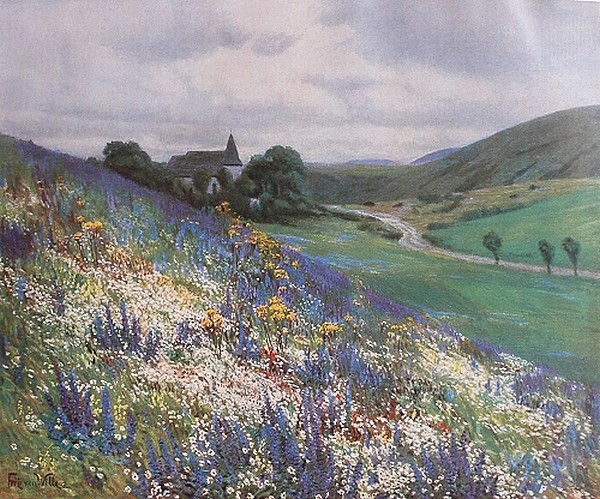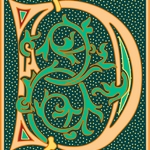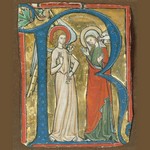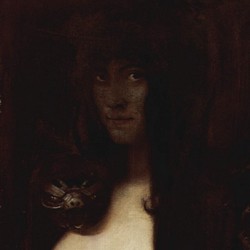
Schumann did something quite surprising when he composed Dichterliebe: he created his own poetic cycle from a larger work in order to compose his cycle of songs. No one had ever done that before. It's true that Schubert got rid of some Die schöne Múllerin's poems, and the order of Winterreise's songs didn't match that of the poems due to a misunderstanding, but Schumann went one step further. He, who in February 1840 had rigorously musicalized the nine poems from Heine's Lieder cycle (his Liederkreis, op. 24), in May, put together a selection of the sixty-six Lyrische Intermezzo poems for its new cycle. Somehow, Schumann followed those scriptwriters who choose only one plot from a novel to adapt it for the big screen. I can’t tell if it's a good or a bad choice; it all depends on the final work, and Dichterliebe is an extraordinary piece of work.
In this table, we can see on the left the poems selected by Schumann and the order in which they were arranged and, on the right, their position within Heine's cycle. The first seven, up to Ich will meine Seele tauchen, match up; then Schumann skips some of Heine's poems before the eighth and ninth songs. From the tenth on, Und wüssten's die Blumen, he changes the original order several times; the last song, Die alten, bösen Lieder, is also the last poem of the Lyrisches Intermezzo. All in all, Schumann composed twenty songs originally entitled 20 Lieder und Gesänge aus dem „Lyrische Intermezzo”. Dichterliebe, however, has only sixteen songs. When the time to publish the cycle came, Schumann cut out the four songs that are marked on the table in italics (they were published later) and renamed the cycle.
Dichterliebe
Im wunderschönen Monat Mai
Aus meinen Thränen spriessen
Die Rose, die Lilie
Wenn ich in deine Augen seh'
Dein Angesicht
Lehn deine Wang
Ich will meine Seele tauchen
Im Rhein, im heilige Strome
Ich grolle nicht
Und wüssten's die Blumen
Das ist ein Flöten und Geigen
Hör ich das Liedchen klingen
Ein Jüngling liebt ein Mädchen
Am Ieuchtenden Sommermorgen
Es leuchtet meine Liebe
Mein Wagen rollet langsam
Ich hab' ein Traum geweinet
Allnächtlich in Träume
Aus alten Märchen
Die alten, bösen Lieder
Lyrisches Intermezzo
1
2
3
4
5
6
7
11
18
22
20
41
40
46
47
55
56
57
44
66
Schumann's selection created a failed love story whose crucial moment is the seventh song, Ich grolle nicht (the last we’ve heard so far). The last verse of this poem reads: "Ich sah, mein Lieb wie sehr du elend bist" [I saw, my love, how pitiful you are]. The next poem, the 19th in the collection, begins: “Ja, du bist elend, und ich grolle nicht. | Mein Lieb, wir sollen beide elend sein. ”[Yes, you are pitiful, and I bear no grudge. | My love, we will have to be pitiful both]. Then, the beloved's wedding comes and next Und wüssten's die Blumen, the eighth song in Schumann's cycle, which we're listening today. It is as if Heine's poet had held some hope until the very last moment and Schumann's poet had lost all hope after the engagement, because the wedding is Dichterliebe's ninth song.
After such as emotionally complex song, Ich grolle nicht, the mourning for the lost love begins with Und wüssten's die Blumen. Those flowers and birds that have been accompanying him since the first song of the cycle would comfort him if they knew how much he's suffering. The poet invokes the stars as well, as if his most familiar environment were not large enough to contain all his pain. But neither flowers nor birds nor stars know about his sorrow; the only person who knows it is the one who has broken his heart.
The poem’s first three stanzas begin with the words "Und wüsten's" [If they knew] and to me, musically, they sound like a sigh. The voice sighs as the piano plays a fast yet light accompaniment, like a shudder that runs through the song until we find the key word in the poem, "zerrissen". Heine uses the verb "zerreißen", to tear, and I find this image more violent; try to visualise it, both hands are needed to tear something. When the voice sings "zerrissen", the regular structure of the piano changes, and we hear as the heart is torn. The unexpected postlude shows his violent feelings which had been concealed until then; as if the wind would take away a heart torn apart.
The word "zerrisen", in the last verse, is also key to the singer. It regains the Ich grolle nicht spirit and can be sad, furious, in pain... I have chosen the version of a young singer, Mauro Peter, that still conveys innocence; he's accompanied by the great Helmut Deutsch. Hope you enjoy this interpretation and, if you have the time, listen to other versions and appreciate the different characters of this poor lover.
Und wüssten’s die Blumen, die kleinen,
Wie tief verwundet mein Herz,
Sie würden mit mir weinen,
Zu heilen meinen Schmerz.
Und wüssten’s die Nachtigallen,
Wie ich so traurig und krank,
Sie liessen fröhlich erschallen
Erquickenden Gesang.
Und wüssten sie mein Wehe,
Die goldenen Sternelein,
Sie kämen aus ihrer Höhe,
Und sprächen Trost mir ein.
Sie alle können’s nicht wissen,
Nur eine kennt meinen Schmerz:
Sie hat ja selbst zerrissen,
Zerrissen mir das Herz.
If you need an English translation please visit this link

















Comments powered by CComment